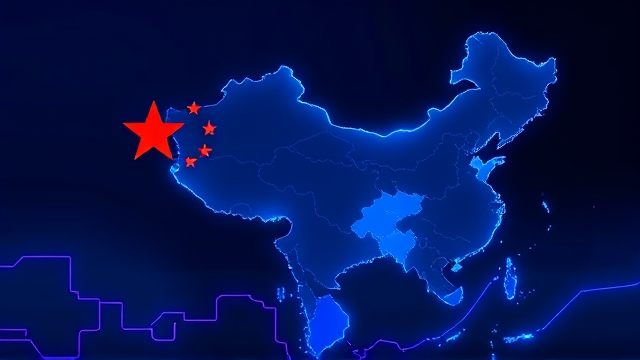China Warns Propaganda Staff To Stop State Secret Leaks
In a move that echoes the perennial tension between state security and public discourse, China’s secrecy authorities have issued a stark admonition to propaganda departments and classified units, demanding a firmer grip on confidential information following several high-profile leaks attributed to news media. The directive, disseminated through an article on the Baomiguan social media account—an organ affiliated with the powerful National Administration of State Secrets Protection—represents more than a routine procedural reminder; it is a significant escalation in the Communist Party’s long-standing campaign to control the narrative and safeguard its most sensitive secrets from both domestic and international scrutiny.This warning, published on a Friday, explicitly urges relevant departments to bolster their confidentiality review protocols, particularly concerning media interviews, a channel through which unvetted information has apparently seeped into the public domain. The caution that websites and social media platforms amplify these risks underscores the regime's acute awareness of the digital age's double-edged sword, where information can circumvent traditional controls with viral speed.To understand the gravity of this directive, one must look to historical precedent; the party’s obsession with secrecy is not a novel development but a foundational pillar of its governance, traceable back to the revolutionary era when operational security was a matter of life and death. In modern context, this manifests as a sprawling legal and bureaucratic apparatus designed to classify a breathtakingly wide array of information, from military deployments and economic data to the inner workings of political purges, creating a culture where state secrecy often trumps public accountability.The very existence of the National Administration of State Secrets Protection, with its vast mandate, highlights a systemic anxiety about internal vulnerabilities, suggesting that the most potent threats to China's information security may not be foreign spies but rather the quotidian carelessness or deliberate actions of its own cadres. This latest warning implies a perceived weakening of internal discipline, a crack in the fortress walls that the party finds intolerable.The consequences of such leaks are multifaceted; domestically, they can undermine the carefully constructed facade of monolithic party unity, revealing policy disagreements or operational missteps that could fuel public dissent or elite infighting. Internationally, a leaked state secret can derail delicate diplomatic negotiations, expose covert operations, or provide adversaries with invaluable intelligence, thereby compromising China's strategic position on the global stage.Expert commentary from analysts who track China's internal security apparatus suggests this directive will likely trigger a new wave of internal investigations and mandatory ideological training within propaganda departments, further chilling an already restricted media environment. Journalists and editors, already operating within narrow red lines, will face even more stringent pre-publication reviews, effectively muting what little critical reporting persists.The broader context is Xi Jinping’s relentless consolidation of power, where control over information is synonymous with political survival; in this light, the Baomiguan article is not merely an administrative memo but a political weapon in the ongoing struggle to eliminate all dissent and unpredictability from public life. The party’s vision, wherein the media functions solely as a mouthpiece for state propaganda, brooks no deviation, and this renewed focus on secrecy reviews is a clear signal that the screws are being tightened yet again. As China projects power abroad, its internal paradoxes become more pronounced—a technologically advanced superpower increasingly reliant on the most archaic tools of information control, a tension that this latest directive from the secrecy authorities only serves to magnify.
Latest News
In a move that will undoubtedly be dissected by historians and political strategists for years to come, President Trump has formally signed a Gaza peace plan,
56 minutes ago0 comments
In a move that will be scrutinized by historians for its geopolitical weight, the initial phase of a Gaza ceasefire deal was formally signed in Sharm
1 hour ago0 comments
The political foundations of Madagascar trembled this week as President Andry Rajoelina announced from an undisclosed safe house that he had survived a direct
1 hour ago1 comments
The scene was one of profound disarray, a stark contrast to the solemn dignity one expects when crossing the final threshold into American life.
1 hour ago1 comments
In a development that geopolitical risk analysts have been modeling for months, a significant hostage and prisoner exchange between Israel and Palestinian
2 hours ago1 comments
The political stability of Madagascar, an island nation perpetually teetering on the edge of crisis, has been violently upended.
2 hours ago0 comments
In a move that will be scrutinized by historians for its parallels to the grand diplomatic gambits of the twentieth century, President Donald Trump has
2 hours ago1 comments
In a high-stakes geopolitical maneuver that analysts are already comparing to a tense hostage exchange from a Cold War thriller, Israeli and Palestinian
2 hours ago0 comments
It’s quiet here...Start the conversation by leaving the first comment.
